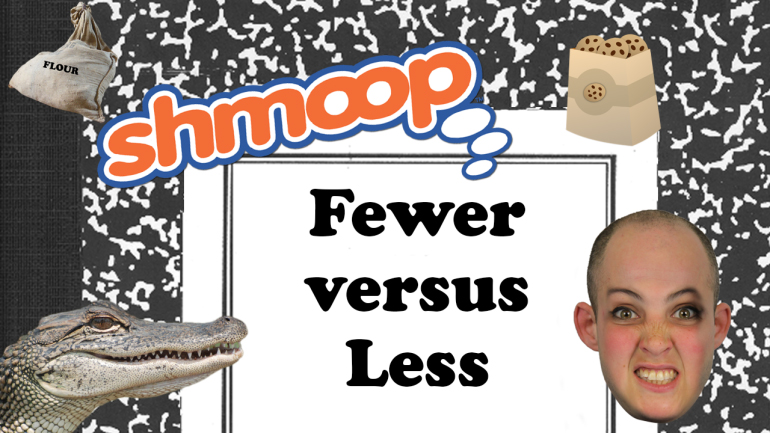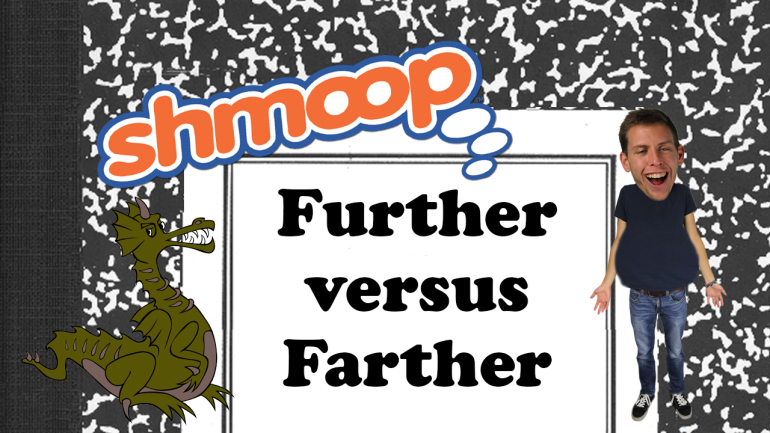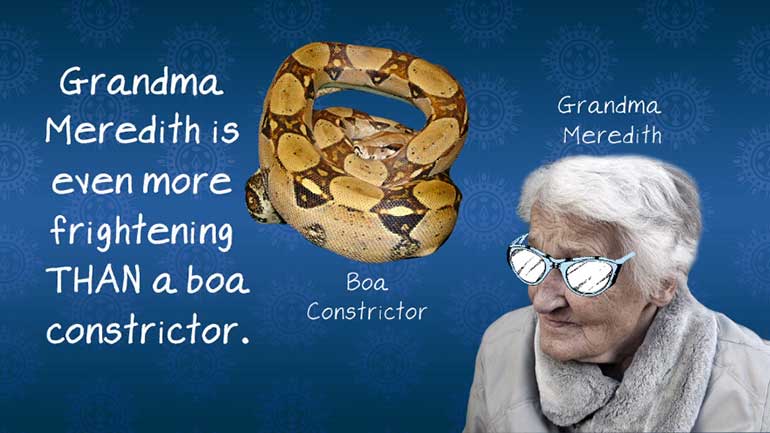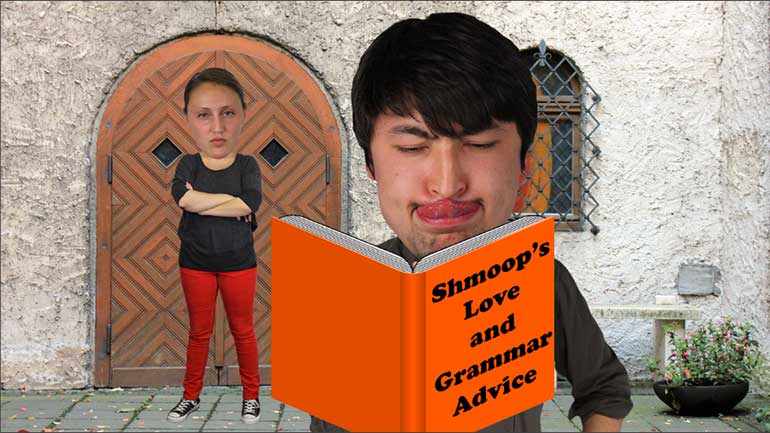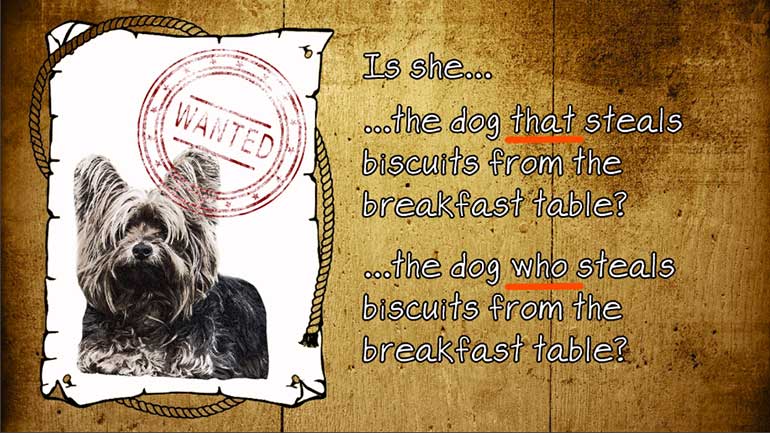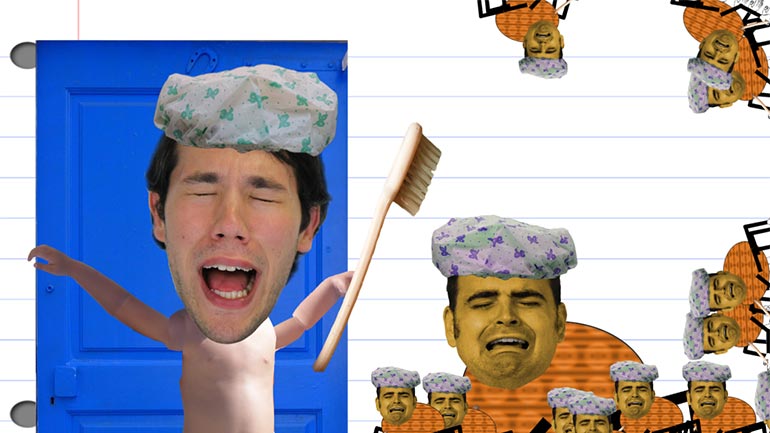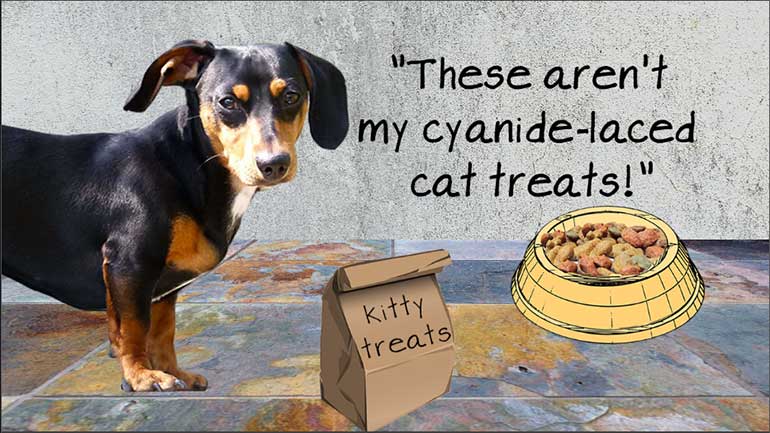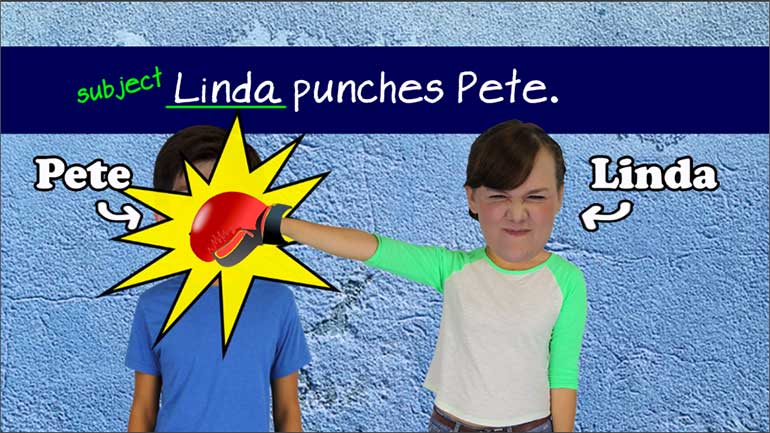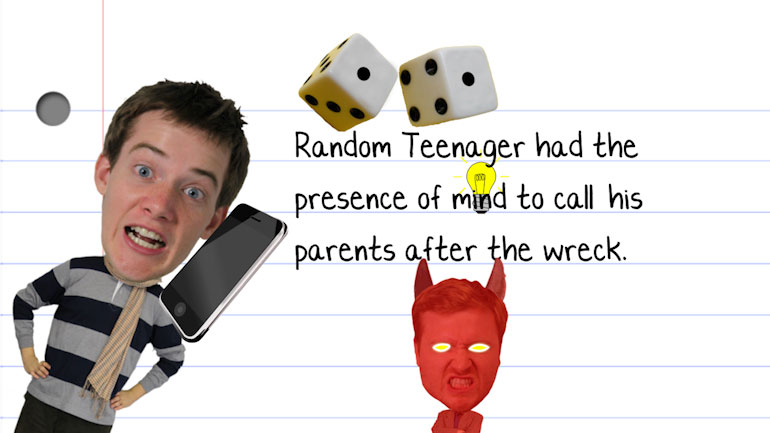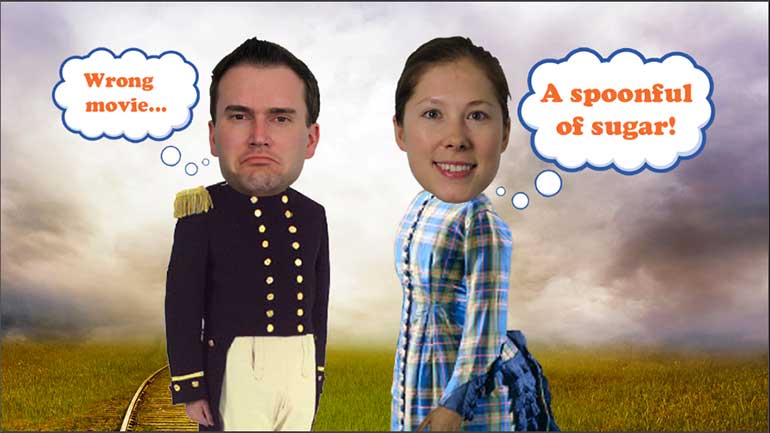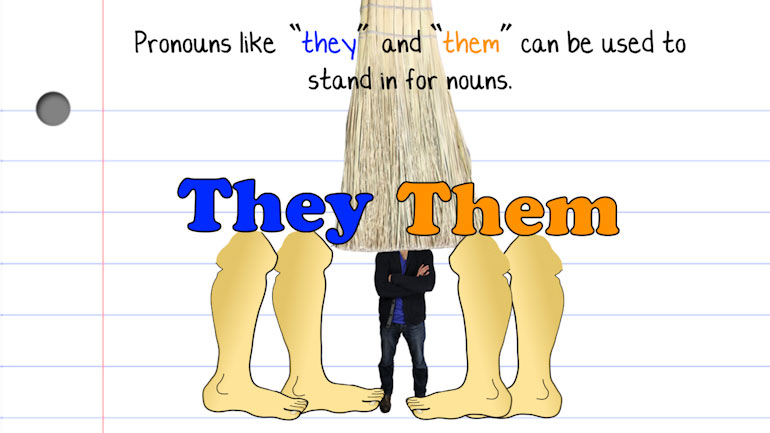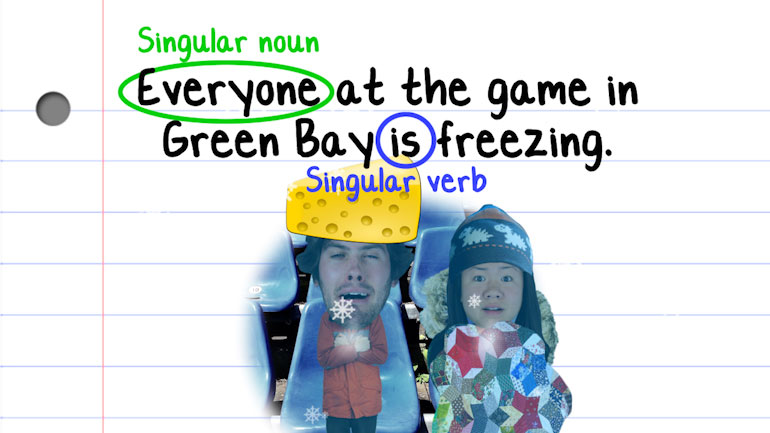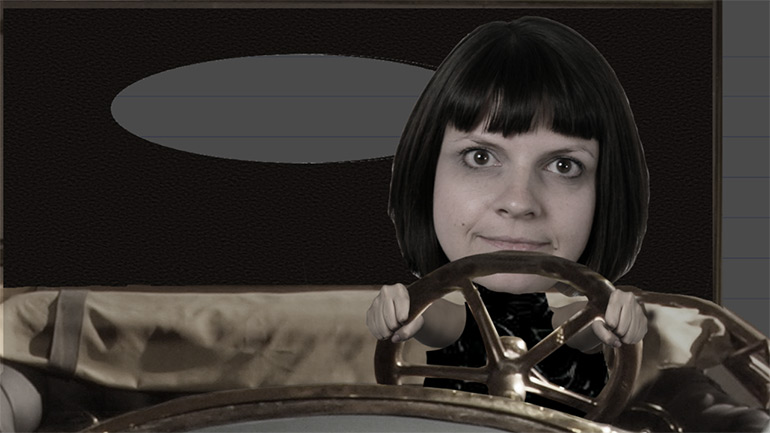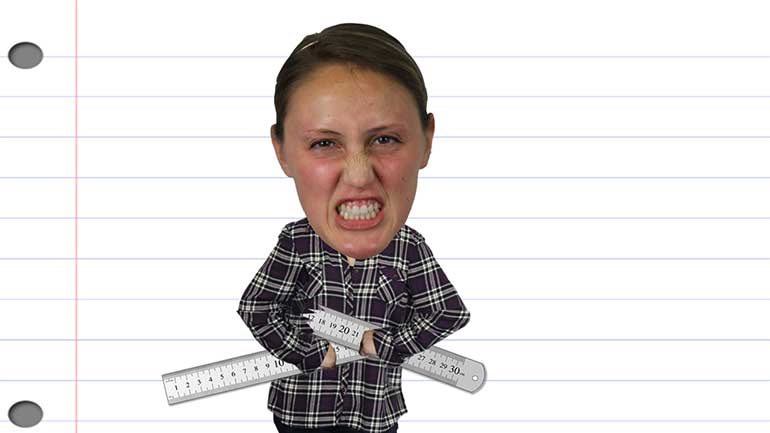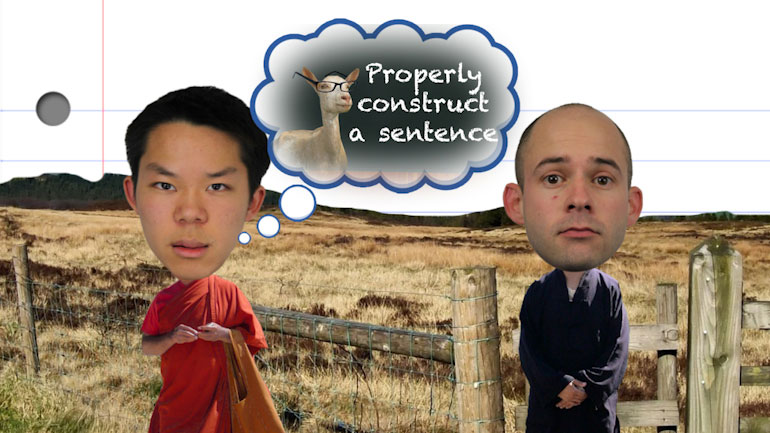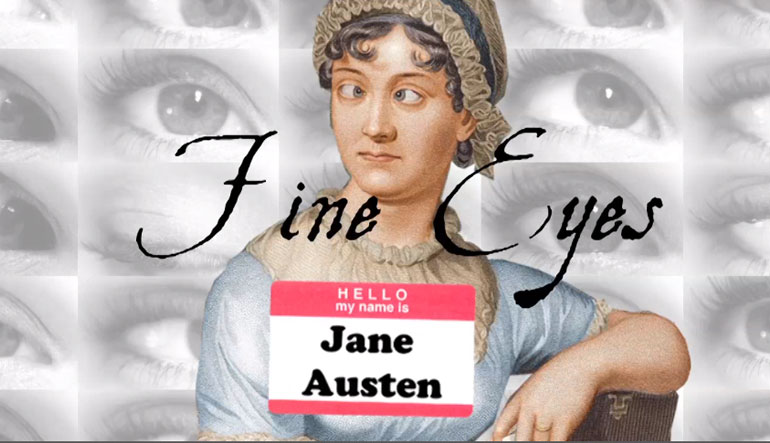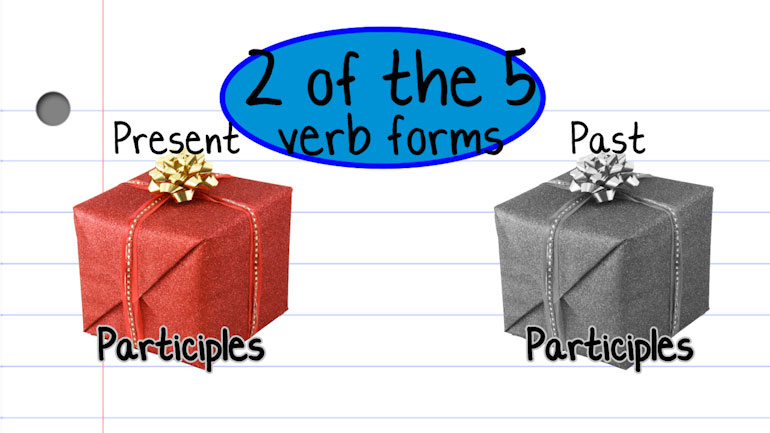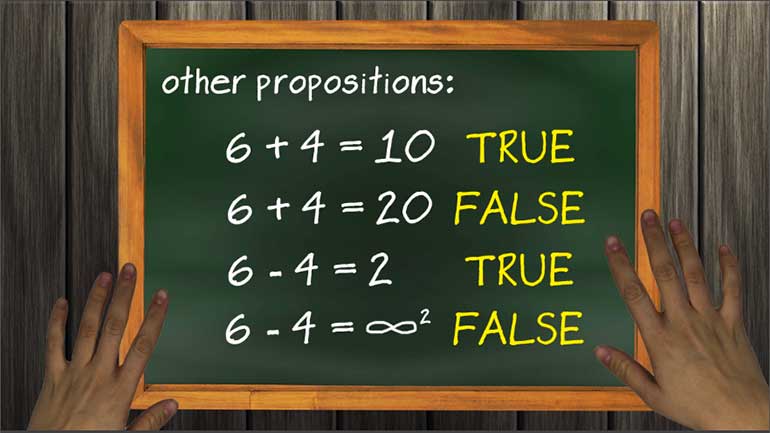ShmoopTube
Where Monty Python meets your 10th grade teacher.
Search Thousands of Shmoop Videos
Grammar Videos 59 videos
Want even more deets on Fewer vs. Less? Click here to review. Or take a look at our entire grammar section for all the goods.
Want even more deets on Further vs. Farther? Click here to review. Or take a look at our entire grammar section for all the goods.
Misplaced Modifiers 3099 Views
Share It!
Description:
Want even more deets on misplaced modifiers? Click here to review. Or take a look at our entire grammar section for all the goods.
Transcript
- 00:04
Misplaced modifiers, a la Shmoop. You're driving down a narrow road in the middle
- 00:09
of the night. Suddenly, a suicidal deer jumps in front of your car.
- 00:16
There are two ways to break the news to your insurance agent. You could say, "A deer
- 00:20
just hit my windshield!"...
- 00:23
...or, "A deer hit just my windshield!" Welcome to the wonderful world of modifiers!
Full Transcript
- 00:32
If you couldn't guess, a modifier is a word or phrase that modifies another word or phrase.
- 00:38
Sometimes, if you're not careful, you can misplace a modifier. A misplaced modifier
- 00:44
is a modifier that modifies the wrong thing. A modifier can be a single word, like "only",
- 00:50
"just", or "almost".
- 00:52
Let's look at a couple of examples. You could say, "Mike ate only venison"...
- 00:56
...or, "Mike only ate venison."
- 00:59
In these examples, the word "only" modifies the word behind it, giving these sentences
- 01:03
completely different meanings. If you say, "Mike ate only venison", what
- 01:08
you mean is that Mike ate nothing but dead deer.
- 01:14
If you say, "Mike only ate venison", however, what you mean is that the only thing Mike
- 01:19
did with the deer meat was eat it. He didn't cook it...
- 01:22
...and he didn't buy it from his local grocer.
- 01:29
You could also use a short phrase at the beginning of a sentence as a modifier. Here's the formula:
- 01:35
short modifying phrase...
- 01:37
...plus comma...
- 01:38
...plus the rest of the sentence.
- 01:41
Just remember, whatever the modifying phrase refers to should immediately follow the comma.
- 01:45
Here are some examples. While you could say, "Freshly cooked, Lisa left the venison to
- 01:52
cool down"...
- 01:53
...what you really mean is, "Freshly cooked, the venison was left by Lisa to cool down."
- 02:00
While you might be tempted to say, "Covered in flies, the highway crew pulled the deer
- 02:04
carcass off the road"...
- 02:05
...what you really mean is, "Covered in flies, the deer carcass was pulled off the
- 02:09
road by the highway crew." When it comes to modifiers, the smartest thing
- 02:14
you can do is to pay attention to what you're writing.
- 02:16
You don't want to misplace a modifier...
- 02:19
...any more than you'd want to misplace any leftovers.
Related Videos
This video explains the difference between affect and effect and provide tips for remembering which is which and when to use each one. If you suffe...
Want even more deets on Question Marks? Click here to review. Or take a look at our entire grammar section for all the goods.
Want even more deets on Your vs. You're? Click here to review. Or take a look at our entire grammar section for all the goods.
What’s the difference between its and it’s (spoiler alert: it’s more than just an apostrophe). This video covers the use of both of these wor...
